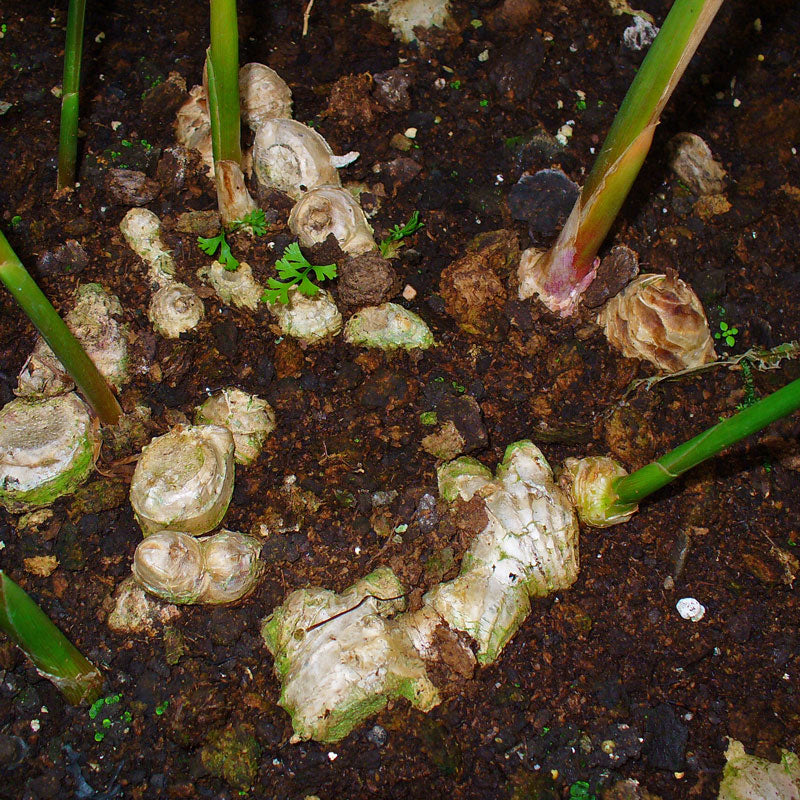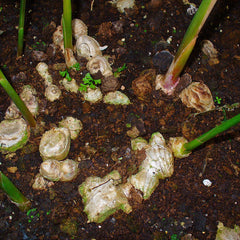

Ginger Root, Powder (Zingiber officinale)
- $14.00 CAD
- $14.00 CAD
- Unit price
- per
50g, 100g, 250g
Couldn't load pickup availability
Parts used: Root
Properties
Alterative, antacid, anti-inflammatory, carminative, diaphoretic, diuretic, emmenagogue, febrifuge, rubefacient, sialagogue, stimulant
Primary nutrients
Calcium, iron, magnesium, phosphorus, potassium, protein, sodium, vitamins A, B-complex and C
Ginger has been used medicinally for thousands of years. It is thought to have blood-thinning properties and the ability to lower blood cholesterol levels. It is a blood stimulant and cleansing herb. It is also used for respiratory problems such as colds, sore throats, bronchitis, congestion, headaches and pain. Ginger is also known to help with nausea, kidney problems, heart problems, fever, vomiting, cramps, and in herbal combinations to aid in the effectiveness of other herbs. It is well known for its medicinal properties.
Ginger is used for numerous ailments, including menstrual symptoms, inflammation, arthritis, high cholesterol, liver problems, gastrointestinal problems and motion sickness.
Researchers claim that there are two natural antibiotics found in Ginger. It has been found to inhibit the growth of bacteria. It has the ability to relieve dizziness and motion sickness, may help in preventing heart attacks, contains anti-inflammatory agents, and has shown significant improvement for those suffering with rheumatoid arthritis with pain relief, reduction in swelling and improved mobility.
Ginger is probably best known for its positive effect on the gastrointestinal system.
Primary Applications
Bronchitis
Childhood diseases
Circulation, poor
Colds
Colic
Colitis
Cramps, stomach
Diarrhea
Dizziness
Fatigue
Fevers
Flu
Gas
Gastric disorders
Headache
Heart problems
Indigestion
Morning sickness
Motion sickness
Nausea
Throat, sore
Vomiting
Secondary Applications
Colon problems
Coughs
Cramps, uterine
Hemorrhage
Intestinal problems
Kidney problems
Paralysis
Sinus problems
Toothaches
50g, 100g, 250g
RELATED PRODUCTS
- Choosing a selection results in a full page refresh.


